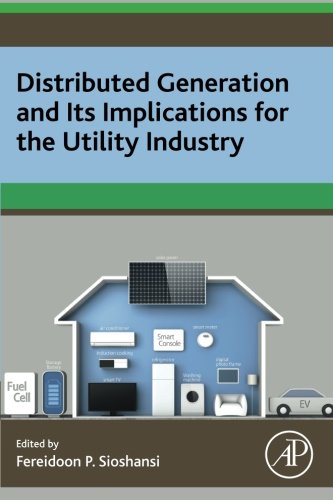

Most ebook files are in PDF format, so you can easily read them using various software such as Foxit Reader or directly on the Google Chrome browser.
Some ebook files are released by publishers in other formats such as .awz, .mobi, .epub, .fb2, etc. You may need to install specific software to read these formats on mobile/PC, such as Calibre.
Please read the tutorial at this link: https://ebookbell.com/faq
We offer FREE conversion to the popular formats you request; however, this may take some time. Therefore, right after payment, please email us, and we will try to provide the service as quickly as possible.
For some exceptional file formats or broken links (if any), please refrain from opening any disputes. Instead, email us first, and we will try to assist within a maximum of 6 hours.
EbookBell Team

4.4
62 reviewsDistributed Generation and its Implications for the Utility Industry examines the current state of the electric supply industry; the upstream and downstream of the meter; the various technological, business, and regulatory strategies; and case studies that look at a number of projects that put new models into practice.
A number of powerful trends are beginning to affect the fundamentals of the electric utility business as we know it. Recent developments have led to a fundamental re-thinking of the electric supply industry and its traditional method of measuring consumption on a volumetric basis. These developments include decreasing electricity demand growth; the rising cost of fossil fuels and its impact on electricity costs; investment in energy efficiency; increasing numbers of prosumers who generate for some or all of their own needs; and market reforms.
This book examines the implications of these trends in chapters focusing on distributed and decentralized generation, transactive energy, the role of electric vehicles, any much more.